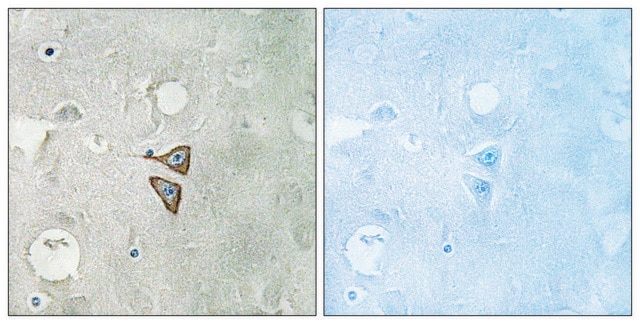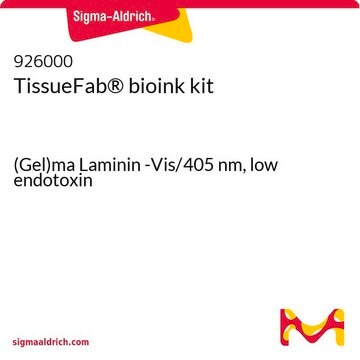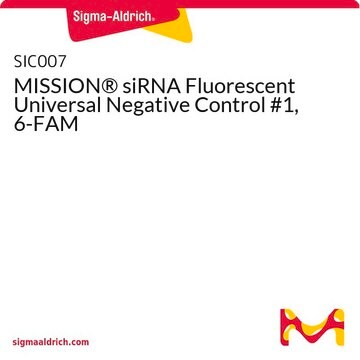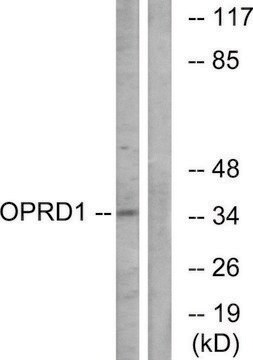AB1560
Anti-Opioid Receptor Antibody, δ, pain, NT
serum, Chemicon®
Synonym(s):
Anti-DOP, Anti-DOR, Anti-DOR1, Anti-OPRD
About This Item
Recommended Products
biological source
rabbit
Quality Level
antibody form
serum
antibody product type
primary antibodies
clone
polyclonal
species reactivity
mouse, human, rat
manufacturer/tradename
Chemicon®
technique(s)
flow cytometry: suitable
immunohistochemistry: suitable (paraffin)
western blot: suitable
NCBI accession no.
UniProt accession no.
shipped in
dry ice
target post-translational modification
unmodified
Specificity
Immunogen
Application
Reactive on paraffin embedded tissue.
Western Blot: 1:1000. Under reducing conditions the antibody will detect major bands at 36 and 72 kDa.
FACS on human T-cells (Sharp, 2001)
Optimal working dilutions must be determined by the end user.
IMMUNOHISTOCHEMISTRY PROTOCOL FOR AB1560
This antibody has been used successfully on 30 mm, free floating, 4% paraformaldehyde fixed rat brain tissue. All steps are performed under constant agitation. Suggested protocol follows.
1) 3 x 10 minute washes in TBS (without Triton).
2) Incubate for 30 minutes in TBS with 3% serum (same as host from secondary antibody).
3) Incubate primary antibody diluted appropriately in TBS with 1% serum (same as host from secondary antibody) (without Triton) for 2 hours at room temperature followed by 16 hours at 4°C.
4) 3 x 10 minute washes in TBS.
5) Incubate with secondary antibody diluted appropriately in TBS with1% serum (same as host from secondary antibody).
6) 3 x 10 minute washes in TBS.
7) ABC Elite (1:200 Vector Labs) in TBS.
8) 2 x 10 minute washes in TBS.
9) 1 x 10 minute wash in phosphate buffer (no saline).
10) DAB reaction with 0.06% NiCl added for intensification.
11) 2 x 10 minute washes in PBS.
12) 1 x 10 minute wash in phosphate buffer (no saline).
Neuroscience
Neuroinflammation & Pain
Target description
Linkage
Physical form
Storage and Stability
Analysis Note
Spinal cord
Other Notes
Legal Information
Disclaimer
Not finding the right product?
Try our Product Selector Tool.
Storage Class Code
12 - Non Combustible Liquids
WGK
WGK 1
Flash Point(F)
Not applicable
Flash Point(C)
Not applicable
Certificates of Analysis (COA)
Search for Certificates of Analysis (COA) by entering the products Lot/Batch Number. Lot and Batch Numbers can be found on a product’s label following the words ‘Lot’ or ‘Batch’.
Already Own This Product?
Find documentation for the products that you have recently purchased in the Document Library.
Our team of scientists has experience in all areas of research including Life Science, Material Science, Chemical Synthesis, Chromatography, Analytical and many others.
Contact Technical Service






![Poly[(9,9-dioctylfluorenyl-2,7-diyl)-co-(2,5-p -xylene)]](/deepweb/assets/sigmaaldrich/product/structures/304/486/0a6afc7d-029d-435c-a452-b42c5b111abd/640/0a6afc7d-029d-435c-a452-b42c5b111abd.png)

